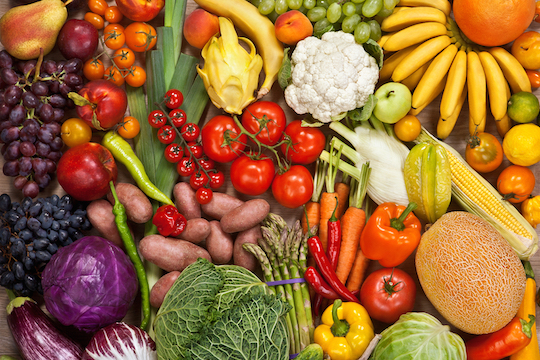8 Foods to Boost Your Immune System

1. Vitamin C. Vitamin C tops the list of immune boosters for many reasons. There has been more research about the immune-boosting effects of Vitamin C than perhaps any other nutrient. Vitamin C supplements are inexpensive to produce, and it’s available naturally in many fruits and vegetables. Also, you can buy a vitamin-C-fortified version of just about anything. Here’s what the research shows about how this mighty vitamin protects your body.
Vitamin C increases the production of infection-fighting white blood cells and antibodies and increases levels of interferon, the antibody that coats cell surfaces, preventing the entry of viruses. Vitamin C reduces the risk of cardiovascular disease by raising levels of HDL (good) cholesterol while lowering blood pressure and interfering with the process by which fat is converted to plaque in the arteries. As an added perk, persons whose diets are higher in vitamin C have lower rates of colon, prostate.
2. Vitamin E. This important antioxidant and immune booster doesn’t get as much press as vitamin C, yet it’s important to a healthy immune system.
Vitamin E stimulates the production of natural killer cells, those that seek out and destroy germs and cancer cells. Vitamin E enhances the production of B-cells, the immune cells that produce antibodies that destroy bacteria. Vitamin E supplementation may also reverse some of the decline in immune response commonly seen in aging. Vitamin E has been implicated in lowering the risk of cardiovascular disease. In the Harvard School of Public Health study of 87,000 nurses, Vitamin E supplementation was shown to cut the risk of heart attacks by fifty percent.
It’s not difficult to get 30 to 60 milligrams every day of Vitamin E from a diet rich in seeds, vegetable oils, and grains, but it’s difficult for most people to consume more than 60 milligrams a day consistently through diet alone. Supplements may be necessary to get enough vitamin E to boost your immune system. You need 100-400 milligrams per day, depending on your general lifestyle. People who don’t exercise, who smoke, and who consume high amounts of alcoholic beverages will need the higher dosage. Those with a more moderate lifestyle can get by with lower levels of supplementation.
3. Carotenoids. Beta carotene increases the number of infection-fighting cells, natural killer cells, and helper T-cells, as well as being a powerful antioxidant that mops up excess free radicals that accelerate aging. Like the other “big three” antioxidants, vitamins C and E, it reduces the risk of cardiovascular disease by interfering with how the fats and cholesterol in the bloodstream oxidize to form arterial plaques. Studies have shown that beta carotene can lower the risk of cardiovascular disease, especially strokes and heart attacks, giving scientific credence to the belief that a carrot a day can keep the heart surgeon away. Beta carotene also protects against cancer by stimulating the immune cells called macrophages to produce tumor necrosis factor, which kills cancer cells. It has also been shown that beta carotene supplements can increase the production of T-cell lymphocytes and natural killer cells and can enhance the ability of the natural killer cells to attack cancer cells.
Beta carotene is the most familiar carotenoid, but it is only one member of a large family. Researchers believe that it is not just beta carotene that produces all these good effects, but all the carotenoids working together. This is why getting carotenoids in food may be more cancer-protective than taking beta carotene supplements.
The body converts beta carotene to vitamin A, which itself has anticancer properties and immune-boosting functions. But too much vitamin A can be toxic to the body, so it’s better to get extra beta carotene from foods and let the body naturally regulate how much of this precursor is converted to the immune-fighting vitamin A. It’s highly unlikely that a person could take in enough beta carotene to produce a toxic amount of vitamin A, because when the body has enough vitamin A, it stops making it.
4. Bioflavenoids. A group of phytonutrients called bioflavenoids aids the immune system by protecting the cells of the body against environmental pollutants. Bioflavenoids protect the cell membranes against the pollutants trying to attach to them. Along the membrane of each cell there are microscopic parking spaces, called receptor sites. Pollutants, toxins, or germs can park here and gradually eat their way into the membrane of the cell, but when bioflavenoids fill up these parking spots there is no room for toxins to park. Bioflavenoids also reduce the cholesterol’s ability to form plaques in arteries and lessen the formation of microscopic clots inside arteries, which can lead to heart attack and stroke. Studies have shown that people who eat the most bioflavenoids have less cardiovascular disease. A diet that contains a wide variety of fruits and vegetables, at least six servings per day, will help you get the bioflavenoids needed to help your immune system work in top form.
5. Zinc. This valuable mineral increases the production of white blood cells that fight infection and helps them fight more aggressively. It also increases killer cells that fight against cancer and helps white cells release more antibodies. Zinc supplements have been shown to slow the growth of cancer. Zinc increases the number of infection-fighting T-cells, especially in elderly people who are often deficient in zinc, and whose immune system often weakens with age. The anti-infection hype around zinc is controversial. While some studies claim that zinc supplements in the form of lozenges can lower the incidence and severity of infections, other studies have failed to show this correlation. A word of caution: too much zinc in the form of supplements (more than 75 milligrams a day) can inhibit immune function.
It’s safest to stick to getting zinc from your diet and aim for 15 to 25 milligrams a day. For infants and children, there is some evidence that dietary zinc supplements may reduce the incidence of acute respiratory infections, but this is controversial. The best source of zinc for infants and young children is zinc-fortified cereals.
RICH SOURCES OF ZINC Food Source of Zinc Serving Size Zinc (in milligrams) Oysters 6 medium 76 Zinc-fortified cereals 1 ounce 0-15 Crab 3 ounces 7 Beef 3 ounces 6 Turkey, dark meat 3 ounces 3.8 Beans 1/2 cup 1.2-1.8
6. Garlic. This flavorful member of the onion family is a powerful immune booster that stimulates the multiplication of infection-fighting white cells, boosts natural killer cell activity, and increases the efficiency of antibody production. The immune-boosting properties of garlic seem to be due to its sulfur-containing compounds, such as allicin and sulfides. Garlic can also act as an antioxidant that reduces the build-up of free radicals in the bloodstream. Garlic may protect against cancer, though the evidence is controversial. Cultures with a garlic-rich diet have a lower incidence of intestinal cancer. Garlic may also play a part in getting rid of potential carcinogens and other toxic substances. It is also a heart-friendly food since it keeps platelets from sticking together and clogging tiny blood vessels.
7. Selenium. This mineral increases natural killer cells and mobilizes cancer-fighting cells. Best food sources of selenium are tuna, red snapper, lobster, shrimp, whole grains, vegetables (depending on the selenium content of the soil they’re grown in), brown rice, egg yolks, cottage cheese, chicken (white meat), sunflower seeds, garlic, Brazil nuts, and lamb chops.
8. Omega-3 fatty acids. A study found that children taking a half teaspoon of flax oil a day experienced fewer and less severe respiratory infections and fewer days of being absent from school. The omega 3 fatty acids in flax oil and fatty fish (such as salmon, tuna, and mackerel) act as immune boosters by increasing the activity of phagocytes, the white blood cells that eat up bacteria. (Perhaps this is why grandmothers used to insist on a daily dose of unpalatable cod liver oil.) Essential fatty acids also protect the body against damage from over-reactions to infection. When taking essential fatty acid supplements, such as flax or fish oils, take additional vitamin E, which acts together with essential fatty acids to boost the immune system. One way to get more omega-3 fatty acids in your diet is to add one to three teaspoons of flax oil to a fruit and yogurt smoothie.
RECIPE FOR IMMUNE-BOOSTING SMOOTHIE
Children often don’t feel like eating following a cold or illness. Their nutrition suffers and their immune system suffers. This accounts for the common occurrence of getting one infection after another. It’s best to keep so well nourished that the nutritional reserves can withstand several days of poor eating. Drink this smoothie daily upon school entry in September, upon beginning daycare, upon exposure to a contagious illness, or when you or your child feels a cold coming on.
• 2 cups milk or soy or rice beverage
• 1 cup plain nonfat yogurt
• 1 serving of a multinutrient supplement
• one frozen banana, cut up
• 1/2 cup frozen blueberries
• 1/2 cup each of your favorite fruit, frozen (e.g., organic strawberries, papaya, mango)
• 1 tbsp. flax oil or 2 tbsp. flaxseed meal (Because fiber steadies the absorption of carbohydrates and therefore contributes to a steadier blood sugar we suggest using rich sources of fiber, such as flaxseed meal (i.e., ground flax seeds, containing both the oil and fiber), although flax oil has a more palatable consistency than flaxseed meal. For additional fiber, if you don’t mind an even grainier texture, add 1 tbsp. or more of oat bran.)
• 10 mg. zinc
• 100 mcg. selenium
• 50-100 IU vitamin E
• 2 tbsp. peanut butter (optional)
Combine all the ingredients and blend until smooth. Serve immediately after blending while the mixture still has a bubbly milkshake-like consistency.
Have a great day,
The Vitality Team
- Posted: August 3, 2014
- | by: Dr. Crysta Serne
- | 1 Comment
- | Categories: Nutrition Tips
- | Tags: Naturopath, Nutrition, Omega 3 Fatty Acids, Vitamins







[…] some options to increase immune function. Earlier this month, Dr. Serné posted an article about foods to boost immune function and this article serves as a great adjunct to […]